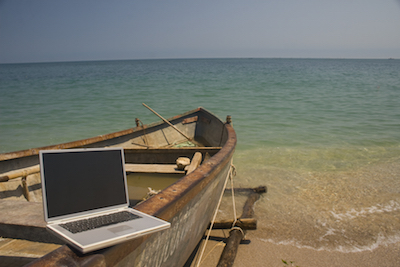 Although I’ve assembled plenty of advice for aspiring travel writers on my websites over the years, I still get a steady stream of queries – often from college students – asking about how to land a travel writing gig. A recent inquiry comes from Maggie in Minnesota:
Although I’ve assembled plenty of advice for aspiring travel writers on my websites over the years, I still get a steady stream of queries – often from college students – asking about how to land a travel writing gig. A recent inquiry comes from Maggie in Minnesota:
I am an aspiring travel journalist and freshman in college. I have decided to pursue travel journalism as my career. I am only 19 years old, but I have already been on numerous international travels. I have found that one of the great loves of my life is traveling and writing about those experiences. One of the greatest thrills of my life is interacting with people of other cultures, hearing their stories, living their way of life, etc.
Mr. Potts, what I am trying to get at is that I am very passionate about travel and writing. I know many people my age dream of being a travel journalist, and I know many of them may be better writers than I. What can I do to make my writing stand apart from all others? How can I be a successful travel journalist? What do magazines look for when they hire a travel journalist? What can I be doing now to prepare me for my future as a travel journalist?
This is what I told Maggie:
My best advice for you is to find an area of expertise. An area of expertise might be a physical area, such as Southeast Asia or Scandinavia, or the Rocky Mountains; or it may be a travel specialty, such as extreme sports, or golf, or low-budget travel, or spa travel. Keep in mind it will take you a long time to accumulate expertise — but you’ll have fun doing it. With enough expertise, you may be able to write for (or create your own) guidebooks, and you can do lots of freelancing on the side.
Interestingly, getting “hired” by a magazine or newspaper as a travel journalist is a mixed bag. It makes for a stable job, but ironically you won’t be able to travel much in a free-spirited manner — since publications rely on freelancers for their actual travel features, and they themselves often stick to travel news that can be reported from an office. And, even more ironically, those staffers who do get to travel usually earn this privilege not by accumulating experience as travelers, but by accumulating experience as normal, office-bound writers and editors. So if you really want a staff job, aim for magazine/newspaper internships while you’re still in school.
I didn’t do this: I took the freelance route, which is more fun, but a lot less stable and remunerative. I traveled, taught English, traveled some more, worked odd jobs, and traveled some more. I didn’t sell a travel article for money until I was 28 — and, while I am a full-time travel writer now with books under my belt, I still don’t make much money as a freelancer. Few people do.
So only get into travel journalism if you really love to travel and write. If you think it’s a good pretext for getting to travel, think again: you can travel just as much by saving up money from another, better-paying job, and just taking off to go vagabonding. So only pursue travel writing because you love to write as well. If that admonition hasn’t scared you off, I’ll advise you to write as much as possible, work on your narrative voice (because a vivid or funny voice can make all the difference), do some publication internships, get out there and work on your travel expertise, and — most of all — have fun! Even if your travels don’t lead to a full-time career, they are a reward in and of themselves.
Image: Tim Scott (shutterstock)
